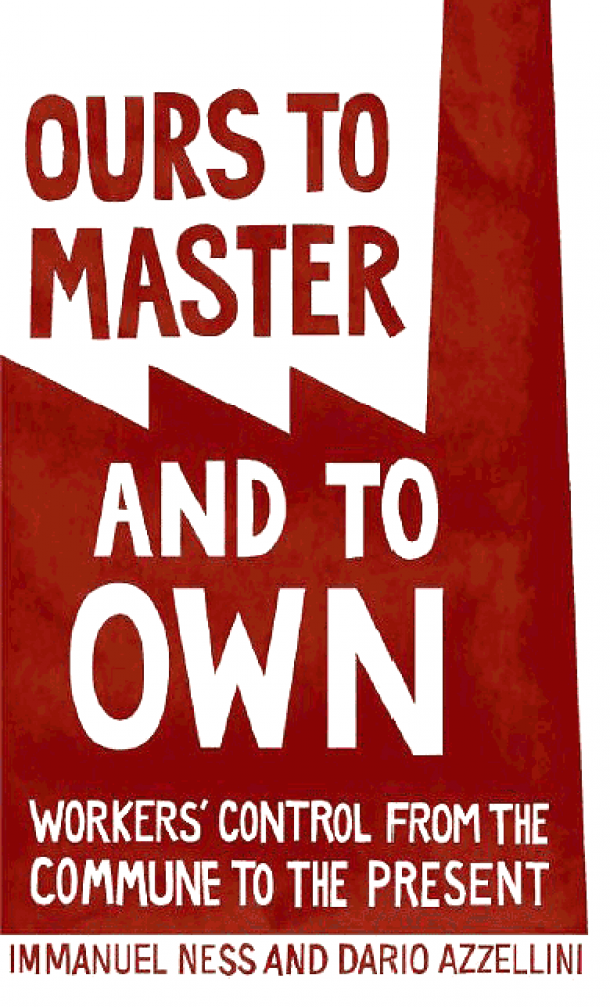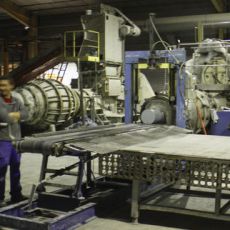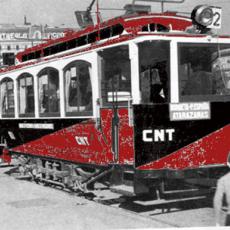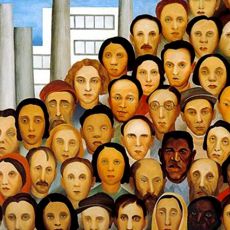Ours to master and to own
Workers’ Control from the Commune to the Present
From the dawning of the industrial epoch, wage earners have organized themselves into unions, fought bitter strikes, and have gone so far as to challenge the very premises of the system by creating institutions of democratic self-management aimed at controlling production without bosses. Looking at specific examples drawn from every corner of the globe and every period of modern history, this pathbreaking volume comprehensively traces this often under-appreciated historical tradition.
Ripe with lessons drawn from historical and contemporary struggles for workers’ control, Ours to Master and to Own is essential reading for those struggling to bring to birth a new world from the ashes of the old.
Reviews:
Ours to Master and to Own is the most substantive and comprehensive work on workers control and self management today. I strongly recommend this work, which provides examples drawn from throughout the world of workers struggling for justice and power.
Gary Younge, Columnist, The Guardian and The Nation. Author, Who We Are and Should It Matter in the 21st Century (Penguin/Viking)
The seemingly logical and just idea that workers themselves should make the decisions regarding and reap the benefits of their labor has always been a fraught concept with the potential to topple or reform whole societies … This ambitious, copiously researched and clearly written text provides a sweeping diversity of examples, analyzed with cool detachment from the specific politics but with underlying passion for the larger concept.
Kari Lydersen, author of Revolt on Goose Island: The Chicago Factory Takeover and What it Says About the Economic Crisis (Melville House Books, 2009)
With the global capitalist order entering a period of crisis, but also with the dramatic increase in worker’s struggles especially in the global South, this collection is extremely opportune. Workers will seek greater control over market forces and workers councils are bound to re-emerge. A must read for labour analysts and activists alike.
Ronaldo Munck is theme leader for internationalization and social development at Dublin City University and visiting Professor of Sociology at the University of Liverpool
Ness and Azzellini have made a major contribution in producing this insightful and exciting collection of essays on the question of workers control … I didn’t even have to open the book to know it is timely and offers great strategic insight.
Bill Fletcher, Jr., Visiting Scholar, Center for Place, Culture & Politics, CUNY; editorial board, BlackCommentator.com; co-founder, Center for Labor Renewal; immediate past president, TransAfrica Forum; co-author, Solidarity Divided.
Excellent! A very complete, serious and inspiring account of the movements for workers control and their difficulties. There is no doubt that it should become a standard point of reference for future discussions, and actions.
John Holloway is author of Crack Capitalism, (Pluto, 2010) and Change the World Without Taking Power, (Pluto, 2010)
Contents
Introduction
Immanuel Ness and Dario Azzellini
Part I: Workers’ Councils: Historical Overview and Theoretical Debate
1. Workers’ Control and Revolution
Victor Wallis
2. Workers’ Councils in Europe: A Century of Experience
Donny Gluckstein
3. The Red Mole: Workers’ Councils as a Means of Revolutionary Transformation
Sheila Cohen
4. The Political Form at Last Discovered: Workers’ Councils against the Capitalist State
Alberto R. Bonnet
Part II: Workers’ Councils and Self-Administration in Revolution: Early Twentieth Century
5. From Unionism to Workers’ Councils: The Revolutionary Shop Stewards in Germany, 1914–1918
Ralf Hoffrogge
6. The Factory Committee Movement in the Russian Revolution
Mark-David Mandel
7. Factory Councils in Turin, 1919–1920: “The Sole and Authentic Social Representatives of the Proletarian Class”
Pietro Di Paola
8. Workers’ Democracy in the Spanish Revolution, 1936–1937
Andy Durgan
Part III: Workers’ Control under State Socialism
9. Yugoslavia: Workers’ Self-Management as State Paradigm
Goran Musić
10. Give Us Back Our Factories! Between Resisting Exploitation and the Struggle for Workers’ Power in Poland, 1944–1981
Zbigniew Marcin Kowalewski
Part IV: Anticolonial Struggle, Democratic Revolution, and Workers’ Control
11. Workers’ Control in Java, Indonesia, 1945–1946
Jafar Suryomenggolo
12. From Workers’ Self-Management to State Bureaucratic Control: Autogestion in Algeria
Sam Southgate
13. The Limits and Possibilities of Workers’ Control within the State: Mendoza, Argentina, 1973
Gabriela Scodeller
14. Workers’ Councils in Portugal, 1974–1975
Peter Robinson
Part V: Workers’ Control against Capitalist Restructuring in the Twentieth Century
15. Workers’ Control and the Politics of Factory Occupation in 1970s Britain
Alan Tuckman
16. Workers’ Direct Action and Factory Control in the United States
Immanuel Ness
17. “Hot Autumn”: Italy’s Factory Councils and Autonomous Workers’ Assemblies in the 1970s
Patrick Cuninghame
18. Recipe for Anarchy: British Columbia’s Telephone Workers’ Occupation of 1981
Elaine Bernard
Part VI: Workers’ Control, 1990s–2010
19. Workers’ Control in India’s Communist-Ruled State:
Labor Struggles and Trade Unions in West Bengal
Arup Kumar Sen
20. Argentinean Worker-Taken Factories: Trajectories of Workers’ Control under the Economic Crisis
Marina Kabat
21. Workers’ Control under Venezuela’s Bolivarian Revolution
Dario Azzellini
22. Brazilian Recovered Factories: The Constraints of Workers’ Control
Maurício Sardá De Faria and Henrique T. Novaes
Contributor Biographies





